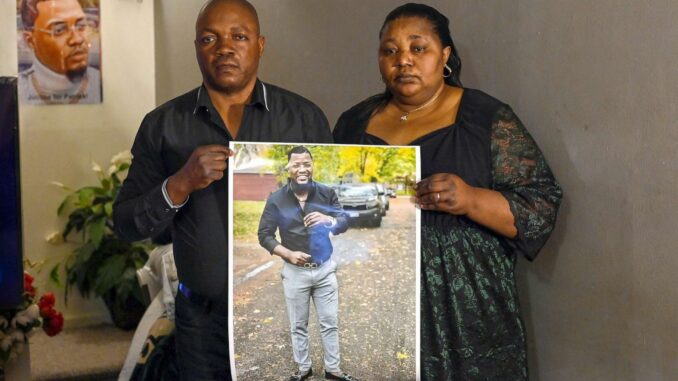Justice for Patrick Lyoya
Patrick Lyoya was a 26-year-old Congolese immigrant, who had his whole life to look forward to until it was tragically cut short by a bullet to the back of his head.
That bullet came from the gun of a white police officer in Grand Rapids, Michigan, on April 4, which happened to be the 54th anniversary of the assassination of Dr. Martin Luther King Jr.

The police officer, Christopher Schurr, claimed he acted in self-defense when he shot Lyoya following a traffic stop for a questionable license plate. The police department also attempted to demonize Lyoya based on an autopsy, saying that Lyoya had a high concentration of alcohol in his blood.
What has become commonplace woven within U.S. society is that another young unarmed Black person was gunned down for no other reason, except driving while Black — while white supremacists like Dylann Roof and Kyle Rittenhouse are treated with kid gloves by police.
Since the public lynching of George Floyd by Minneapolis police in May 2020, Black people continue to be killed by police at more than double the rate of white people, although Black people make up just 13% of the U.S. population.
Lyoya could have easily become just another faceless statistic like the 1,000-plus people killed by police in 2021, according to data obtained by the Washington Post. But just as anti-police brutality protests exploded all over the country following Floyd’s murder, local protests supported by Lyoya’s family occurred daily in Grand Rapids and at the state capital, Lansing, demanding criminal charges be brought against Schurr.

Peter Lyoya and Dorcas Lyoya hold photo of their murdered son, Patrick.
Bringing any charges against police when there are civilian deaths is rare, especially when the victims are from oppressed communities. But that rare occasion did happen on June 9, when the Kent County prosecutor, Christopher Becker, brought a second-degree murder charge against Schurr, who had been on paid administrative leave since April 9.
This charge came as a surprise, since Grand Rapids, a working-class city, has a sordid history of police terror against young Black people. For example, in 2017, the police drew guns on Black teenagers, ages 12 and 14, and handcuffed an 11-year-old girl.
If convicted, Schurr could face a life sentence with the possibility of parole after serving 15 years. But this is a big IF. And who knows IF this charge would have happened at all, if the local protests did not shine a national spotlight on Lyoya’s murder in the first place.
Civil rights attorney Benjamin Crump, representing the Lyoya family, stated, “I think the biggest thing about today is that the prosecutor confirmed what we all knew was the charge — that this officer engaged in unnecessary, unjustifiable use of force when he executed Patrick Lyoya, an unarmed African immigrant, for a minor traffic violation.” (Washington Post, June 9)
Whatever demands come forward, Patrick Lyoya’s family and the Grand Rapids Black community should be supported. What they demand should be viewed as reparations for the police terror inflicted upon individuals and the community — to bring about some semblance of justice for this young man.
But ultimately the real justice will be won once the police — and the profit-driven capitalist system that they faithfully protect and serve — are abolished once and for all.

